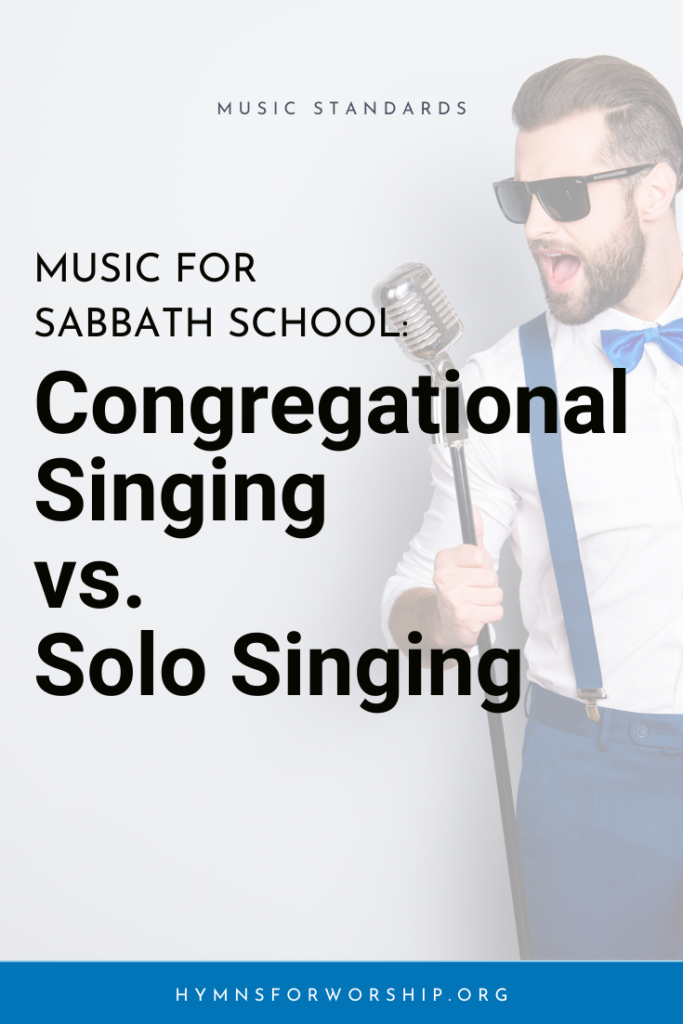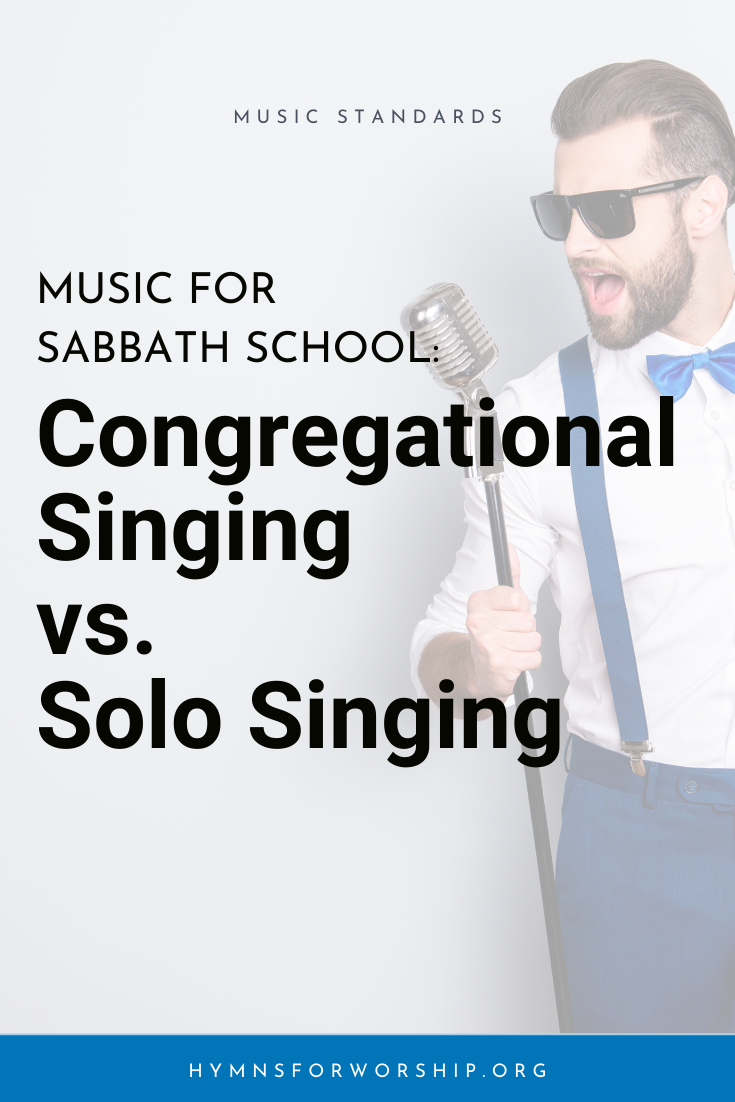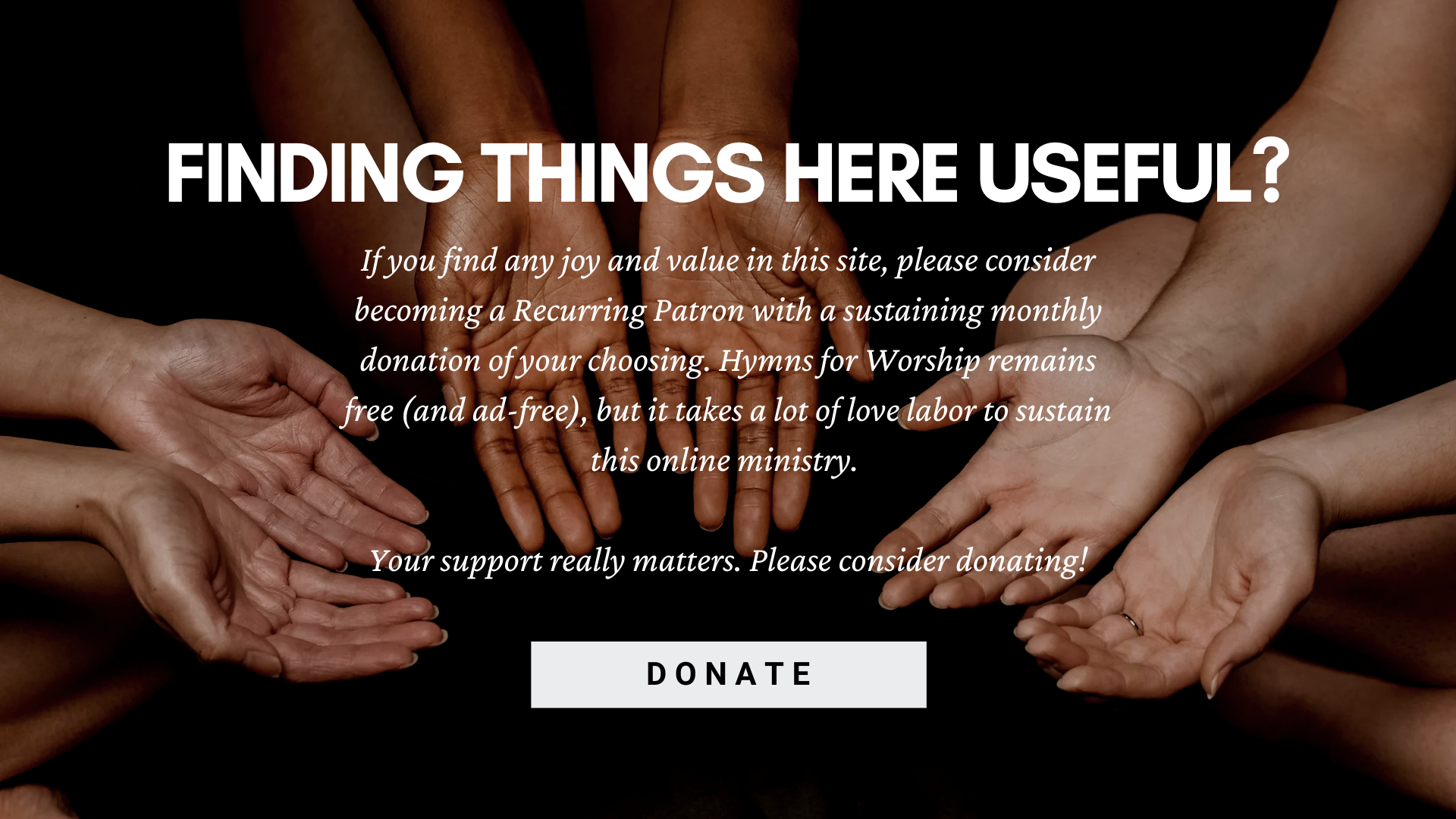Sabbath School has a lot of facets to it. We have the mission stories, features, offerings and what takes a major part of the time is the lesson study. A small but very important part of the Sabbath School is the music.

How is music incorporated in the Sabbath School? Normally, through the song service and special music items (solo or small group singers or instrumentalists).
Service in song is usually done by the congregation singing hymns together to open the worship. While special music items are performed in between spoken parts (prayer, welcome remarks, etc.) to add variety to the program as well as to give opportunities for musically skilled members of the congregation to offer their services to God.
Of the two things mentioned above, which one requires the ‘active’ participation of the church?
The song service. Right?
Sure, the other musical parts are important too, but in my opinion, not equally important. The Bible mentions several instances where singing should be done with the assembly of believers
Scriptural foundation of congregational singing
The Scripture reveal several examples wherein the believer is exhorted to praise God as a congregation:
- Psalm 111:1 “Praise ye the LORD. I will praise the LORD with my whole heart, in the assembly of the upright, and in the congregation.”
- Psalm 149:1 “Praise ye the LORD. Sing unto the LORD a new song, and his praise in the congregation of saints.”
- Hebrews 2:12 “Saying, I will declare thy name unto my brethren, in the midst of the church will I sing praise unto thee.”
The early church, as documented in the New Testament, also gathered together for worship — to pray, break bread, and praise God. (Acts 2:42-47; Acts 13:1-2)
In these examples mentioned, one important ingredient was consistently mentioned — praising God is a valuable part of worship. There are many ways of praising God. In fact, the most effective way of praising Him is through the life we live wherein our lifestyle reflects that our praises and allegiance belong to Him.
However, amongst the assembly of the congregation, the most tangible praise to God is through the testimony we speak and the song we sing.
When we come to Sabbath School, we share our testimonies of the week, we study the Word, we listen to the reports. But the only part in the worship service where the congregation can participate together, as one body is through singing and prayer, particularly congregational singing. This is the most tangible way of praising God in worship.
The singing should not be done by a few only. All present should be encouraged to join in the song service.—Letter 157, 1902. – {Ev 507.4}
Related Post: 10 Reasons Why Singing is a Part of Worship
Things to consider when choosing special music items
Special music items should be a part of worship, but should be included and chosen judiciously. They are not chosen to merely fill in the gaps of the religious meeting. Rather, they should be intentional parts of the service to help the congregation have meaningful worship experience.
What are the things that should be considered when choosing special music items for Sabbath School?
1 || They tend to become theatrical performances
R. L. Whiteside, gospel preacher and Queries Editor for the Gospel Advocate for ten or more years, wrote, “A solo is sometimes very effective; so also is a quartet. But no one wants either as a regular diet. In solos and quartets there is a temptation to sing for show, and a poor solo or a poor quartet is a mess” (Reflections, p. 372).
Among denominations, singing, to a great extent, has become show, entertainment, pomp and formalism. Choirs, quartets, solos, etc. entertain the audience by exhibiting their musical skill.
In the book, Voice in Speech and Song, Ellen White mentioned of a certain elder who would have had more influence for good if only he stop making a theatrical display of his singing. She went on to say that these outward appearance watered down the message he was trying to bring across and failed to give a telling effect on the people.
2 || Too much small group or solo singing tend to make the worship service a concert rather than a religious meeting
Because there’s so little active participation from the congregation, they become spectators instead of worshippers. Congregational singing is then supplanted by these groups by and large.
Singing is a ministry that belongs to all the people of God. The congregation is always the primary choir. The role of professional or volunteer choirs and musicians is to aid the whole people of God in their worship. Not remove their role altogether.
McClintock and Strong state: “As to the persons concerned in singing, sometimes a single person sang alone, but the most ancient and general practice of the Church was for the whole assembly to unite with one heart and voice in celebrating the praises of God” (Cyclopedia of Biblical, Theological and Ecclesiastical Literature, Vol. 8, p. 738).
3 || Consider the singer’s spiritual life more than musical skills
It is inevitable that attention zooms in to that one or few persons in front. If the performers are not leading a certain spirituality in life, they can become a stumbling block to some people. In turn, it bacomes a disctraction for people in worship.
In the book Evangelism by Ellen White, she wrote about this particular dichotomy between what the person professes to sing and what they are really like in real life:
“Many are singing beautiful songs in the meetings, songs of what they will do, and what they mean to do; but some do not do these things; they do not sing with the spirit and the understanding also. So in the reading of the Word of God, some are not benefited, because they do not take it into their very life; they do not practice it.” (p. 508)
Achieving the balance
This is not to downgrade solo or small group singing altogether. There are those who have been given the ability to touch people’s hearts with their voice, and lead a life of faithfulness to God at the same time. They should definitely be given a place to offer their services in worship.
But to put things in proper perspective, singing in church is a serious business and should not be done by anyone who has talent alone.
Continuing from Evangelism, it says, “The Lord has revealed to me that when the heart is cleansed and sanctified, and the members of the church are partakers of the divine nature, a power will go forth from the church, who believe the truth, that will cause melody in the heart. Men and women will not then depend upon their instrumental music but on the power and grace of God, which whill give fullness of joy. There is a work to be done in clearing away the rubbish which has been brought into the church.” (p. 512)
Like this article? Share it!


